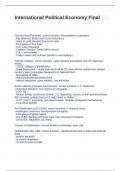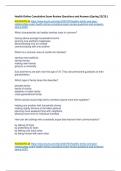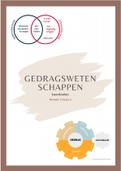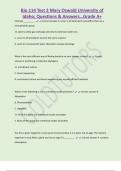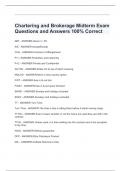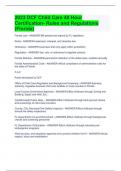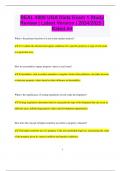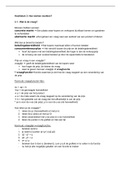Tentamen (uitwerkingen)
International Political Economy Final exam with correct answers 2024
- Vak
- Instelling
Classical Era (Pre-WWI) correct answers -Mercantilism to Liberalism - Pax Britanica: British econ & polt dominance - relied on gold standard (fixed exch rate) - Emergence of free trade - Corn Laws Repealed - Cobden-Chevalier Treaty (MFN clause) - U.S. = protectionist - Trade= mainly with c...
[Meer zien]
